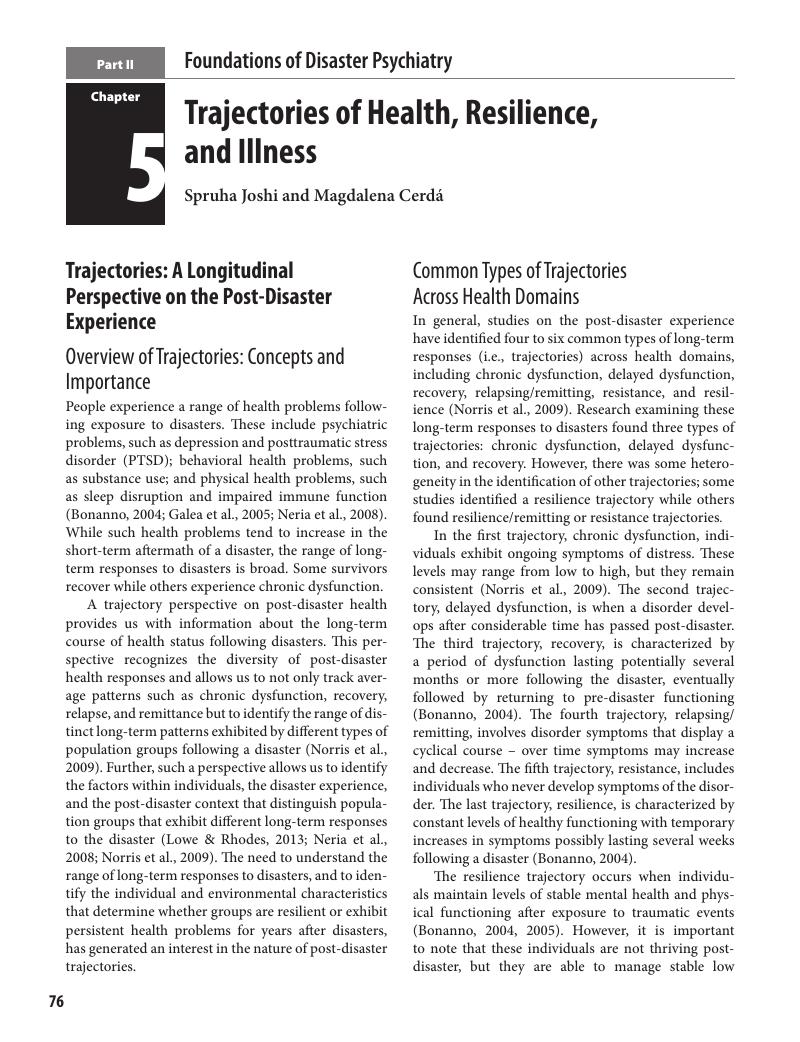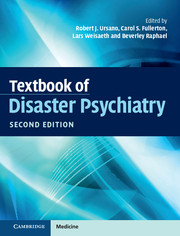Book contents
- Textbook of Disaster PsychiatrySecond Edition
- Additional material
- Textbook of Disaster Psychiatry
- Copyright page
- Contents
- Contributors
- Preface
- Part I Introduction
- Part II Foundations of Disaster Psychiatry
- 2 Epidemiology of Disaster Mental Health
- 3 Disaster Ecology
- 4 Neurobiology of Disaster Exposure
- 5 Trajectories of Health, Resilience, and Illness
- Part III Clinical Care and Interventions
- Part IV Special Topics
- Part V Public Health and Disaster Psychiatry
- Index
- References
5 - Trajectories of Health, Resilience, and Illness
from Part II - Foundations of Disaster Psychiatry
Published online by Cambridge University Press: 02 June 2017
- Textbook of Disaster PsychiatrySecond Edition
- Additional material
- Textbook of Disaster Psychiatry
- Copyright page
- Contents
- Contributors
- Preface
- Part I Introduction
- Part II Foundations of Disaster Psychiatry
- 2 Epidemiology of Disaster Mental Health
- 3 Disaster Ecology
- 4 Neurobiology of Disaster Exposure
- 5 Trajectories of Health, Resilience, and Illness
- Part III Clinical Care and Interventions
- Part IV Special Topics
- Part V Public Health and Disaster Psychiatry
- Index
- References
Summary

- Type
- Chapter
- Information
- Textbook of Disaster Psychiatry , pp. 76 - 86Publisher: Cambridge University PressPrint publication year: 2017
References
- 1
- Cited by



